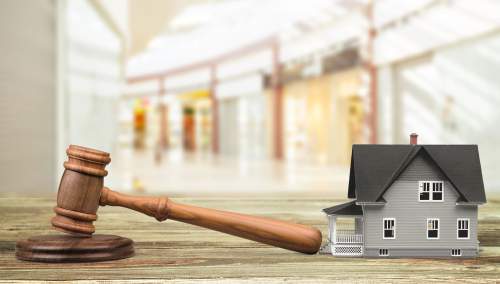Filing Bankruptcy Over 55

Special Issues When Filing Bankruptcy When Over 55
Unfortunately, aging doesn’t make individuals immune to financial challenges. The same financial problems that plague younger generations can also take their toll on Americans age 55 and older. However, older citizens may face special issues that younger people do not when filing for bankruptcy. Sometimes filing for bankruptcy does not make sense for seniors. For some individuals over 55, filing for bankruptcy is the best financial decision they can make to provide them with economic stability. To find out if bankruptcy is right for you, it is best to meet with a well-versed North Carolina bankruptcy attorney who can examine the specifics of your situation. Here are some points to consider.
Protecting Home Equity
A significant number of individuals over the age of 55 have substantial equity in their homes. Although the homestead exemption protects some equity in your home, if you have too much equity, bankruptcy might not make sense for you. Any equity you have in your home that exceeds the exemption, in a Chapter 7 bankruptcy, the trustee can take the excess to pay your creditors. Your North Carolina bankruptcy lawyer can explain further how this works.
Protecting Retirement Accounts
The good news is that nearly all tax-exempt retirement accounts are exempt from bankruptcy. This includes:
- 401(k)s
- 403(b)s
- Profit-sharing
- Defined-benefit plans
Additionally, IRAs and Roth IRAs are exempt up to a specific amount. Under Federal nonbankruptcy exemptions, your retirement benefits are fully exempt if you are a:
- Civil, foreign, or military service employee
- Railroad worker
- CIA employee
- Veteran
- Military Medal of Honor Roll recipient
- Social Security benefit recipient
When you hire an experienced North Carolina bankruptcy attorney, you can determine which of your accounts and how much will be exempt from bankruptcy.
Protecting Social Security Benefits
Another special consideration that is unique to older Americans is social security benefits. To qualify for bankruptcy, your social security benefits are not counted in the means test. However, your payments are only exempt if they are kept in a separate financial account and not combined with other monies.
Protecting Retirement Funds
If you plan to receive money from your retirement account, your North Carolina bankruptcy lawyer can discuss how doing so will impact your bankruptcy. Unlike social security benefits, retirement withdrawals are treated as income to qualify to file bankruptcy. For exemptions, your retirement withdrawals are treated like cash. Unfortunately, this exemption is not a significant amount. However, if you do not file bankruptcy, once withdrawn, your retirement funds are subject to bank levies sometimes used by creditors.
Reach Out to an Experienced North Carolina Bankruptcy Attorney Today
No matter your age, you deserve a fresh start. If you think bankruptcy makes financial sense in your situation, now is the time to talk to a skilled North Carolina bankruptcy lawyer. Your attorney can review all of your financial circumstances to help you determine if filing bankruptcy is the best option for dealing with your debts at this time. Get your free no-obligation bankruptcy consultation at King Law Firm by calling (800) 635-1683 or use our confidential online contact form.






